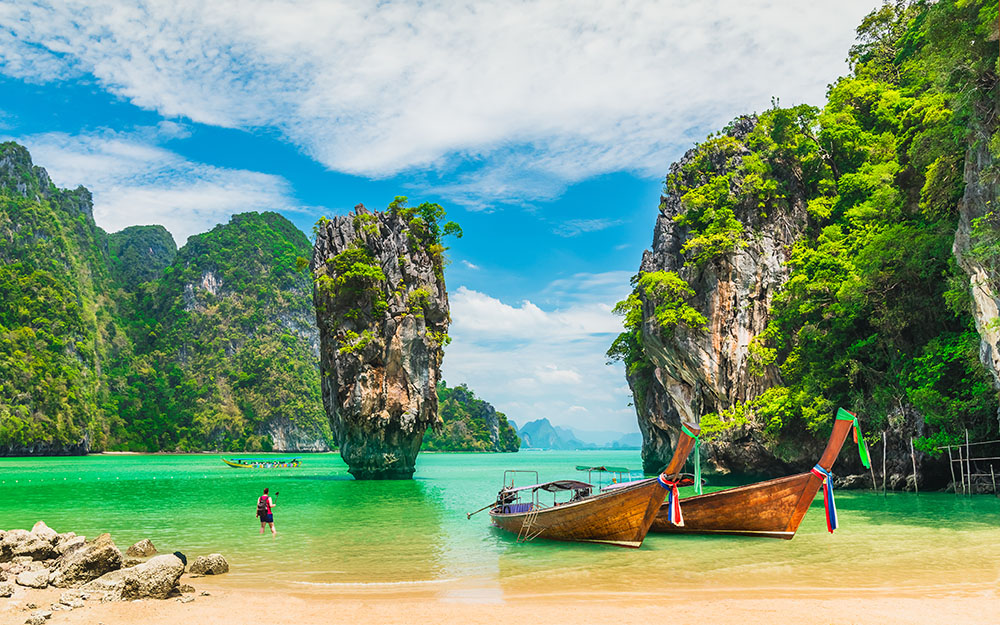

Phuket, Thailand's largest island, has long been a melting pot of vibrant cultures, dramatic landscapes, and a beacon for travelers seeking paradise. The history of tourism in Phuket is as colorful as its sunset-drenched beaches and as transformative as its mountainous jungles.
Historically, Phuket was an important trading post, with Europeans, Arabs, and Indians involved in tin mining and rubber production. However, tourism was not a significant factor in Phuket's economy until the 20th century.
It wasn't until the 1970s that tourism began to take hold in Phuket. Glimpses of its picturesque beaches started appearing in Western media, and soon, backpackers on the Southeast Asia trail began to trickle in, drawn by the island's natural beauty and laid-back atmosphere.
By the 1980s, Phuket had become a popular destination for sun-seekers from around the world. The growth of the tourism industry saw rapid development on the island, with resorts, hotels, and other tourist facilities sprouting up to cater to the increasing influx of international visitors.
The turn of the century brought new developments in Phuket's tourism sector, with luxury hotels and more sophisticated infrastructure enhancing its appeal. However, the island's idyllic image faced a daunting test with the 2004 Indian Ocean tsunami. Despite this tragedy, Phuket's resilient spirit and community saw rapid rehabilitation and reconstruction, restoring confidence among tourists.
In recent years, Phuket has embraced ecotourism and sustainable travel practices in response to the growing environmental concerns among travelers. The trend towards experiential travel has also grown, with tourists seeking authentic local experiences, from Thai cooking classes to community-based tourism.
The island has also seen the rise of digital nomadism, with more visitors looking to balance work and leisure in Phuket's serene setting. This shift has further diversified Phuket's tourism offerings, including co-working spaces and long-term accommodation options.
Health and wellness tourism has become another key trend. With its rejuvenating spas, yoga retreats, and detox centers, Phuket is positioning itself as a sanctuary for those looking to unwind and recharge.
Despite facing challenges like overtourism and environmental pressures, Phuket continues to evolve and innovate to meet the changing needs of global travelers, ensuring its place as a premier travel destination in Southeast Asia.
Looking ahead, Phuket aims to balance growth with sustainability, preserving its natural treasures and unique culture for future generations. With continued investment in responsible tourism initiatives and community engagement, Phuket's tourism history is poised to add new, exciting chapters that prioritize both visitor experiences and environmental stewardship.